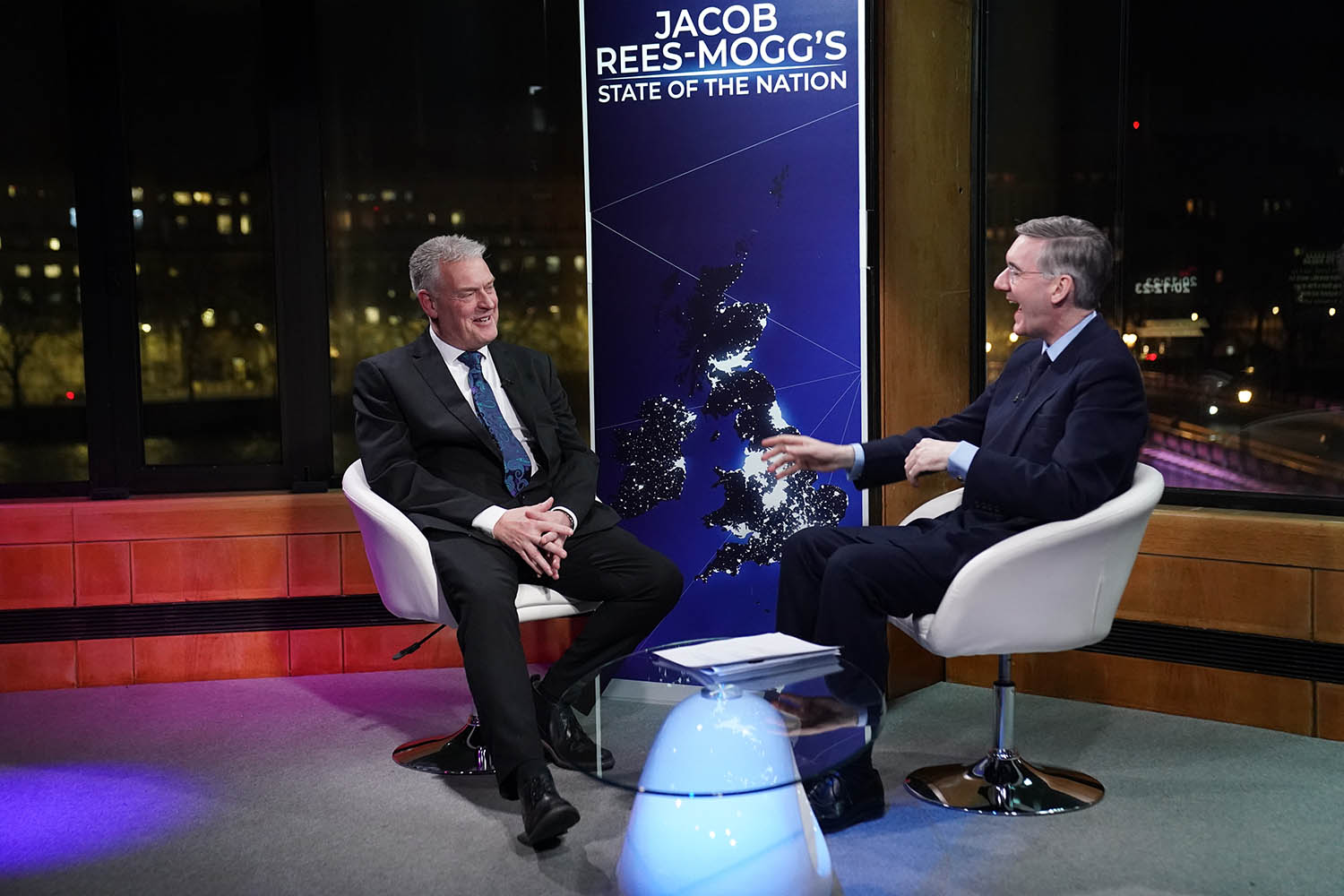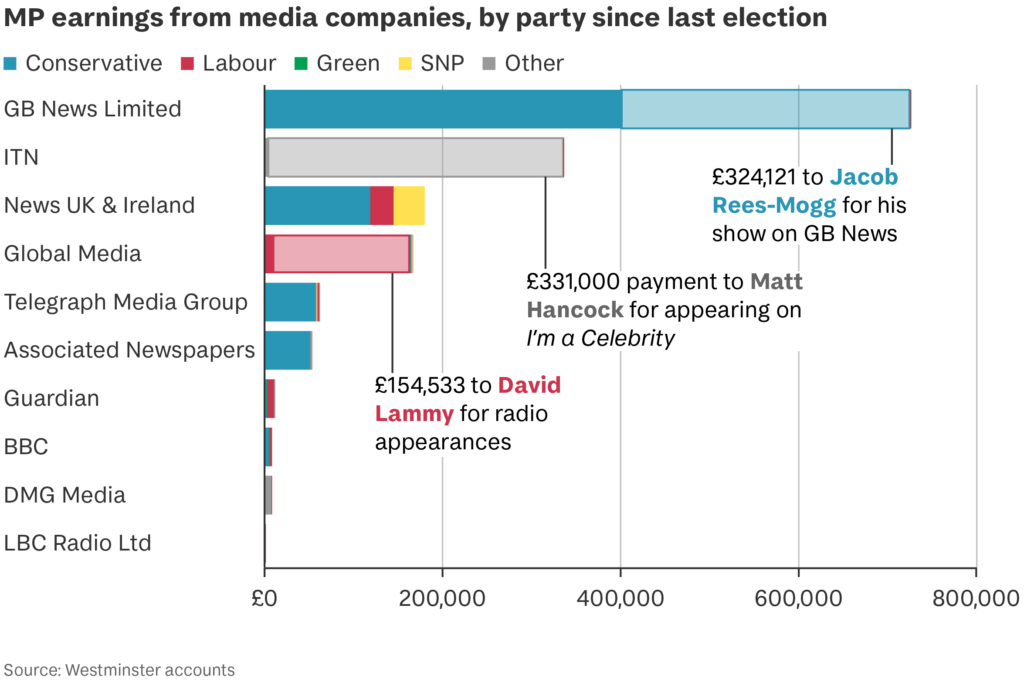
Politics used to be called showbiz for ugly people. That’s old-fashioned: these days, parliamentarians are never off our screens – and increasingly they are cashing in on life in the limelight. Media companies have paid British MPs nearly £1.5 million since the last election, with Conservative MPs raking in the lion’s share of the total, a Tortoise analysis reveals.
Most of the money has come from the upstart broadcaster GB News, which has handed more than £726,000 to politicians, including £324,000 to Jacob Rees-Mogg, a former cabinet minister, and nearly £100,000 to Lee Anderson, the former Conservative party deputy chairman. Just £1,100 of the total went to Labour MPs.
Tortoise’s Westminster Accounts tool shows that MPs have also pocketed more than £335,000 from ITV, largely thanks to Matt Hancock’s 2022 appearance in I’m A Celebrity, for which he lost the Tory whip.
News UK, which owns The Times, The Sun, Times Radio and TalkTV, paid just shy of £200,000. Over the same period LBC’s parent company paid £166,300 to MPs, principally Labour’s shadow foreign secretary David Lammy, who received £154,000 for a regular presenting slot.

But Lammy is an exception, proving the rule that Tory earnings dwarf Labour MPs’ at £820,000, excluding £446,000 going to those who currently sit as independents, including Hancock and Anderson.
British backbench MPs are not prohibited from taking second jobs – even if, as in some of these media roles, they are paid more for outside work.
There are, however, rules on impartiality in broadcast news. GB News is currently being investigated by Ofcom, the regulator, in relation to 13 different cases, some of which concern programmes hosted by Tory MPs.
Ofcom recently ruled that the GB News programme Saturday Morning with Esther and Phil, in which Conservative MPs Esther McVey and Philip Davies interviewed Chancellor Jeremy Hunt, had breached impartiality rules.
Separately the watchdog concluded that an interview between Anderson and former Home Secretary Suella Braverman did not breach the rules because “we were satisfied it was a current affairs programme”.
GB News has previously insisted it takes its “compliance obligations seriously”.
Ofcom, which has itself come under fire for failing to tackle the issue, is now conducting research into audience attitudes towards programmes that feature politicians as presenters.
Steve Goodrich, a spokesman for Transparency International, told Tortoise: “The blurring of the media’s accountability function with party politics risks undermining the rules on impartiality and destroying a key democratic safeguard.
“Failing to address this slide in standards risks signalling that partisan airtime is for sale to those with deep enough pockets.”
Note: as in the US, where partisan TV “news” is a round-the-clock fact of life, you can always switch it off.
Tortoise’s Westminster Accounts tool, which last week added an RTS award to its line-up of prizes, is free for everyone to use.
Go to our Westminster Accounts page to see how much your local MP has received, or discover who are the biggest political donors.
